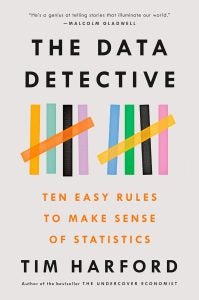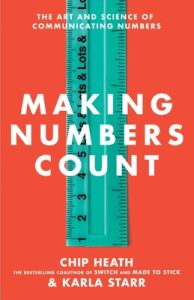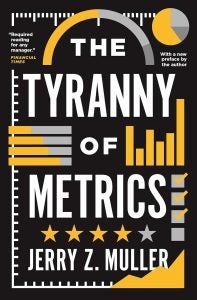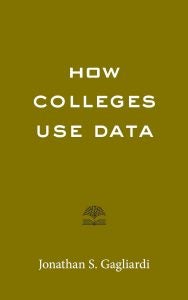Data Team Book Reviews
The Georgetown Law Data Team is also a thinly veiled excuse to hold a book group!
We have now read four books about data, data communication, and data governance together, and we often hold spirited (and fun!) conversations about what we are learning.
Here are the four books we have read, together with our sometimes irreverent thoughts about the books. We hope these inspire you to pick up one of these, or to look for other books to expand your data horizons!
 Tim Harford, The Data Detective: Ten Easy Rules to Make Sense of Statistics (2021)
Tim Harford, The Data Detective: Ten Easy Rules to Make Sense of Statistics (2021)
The publisher says:
Today we think statistics are the enemy, numbers used to mislead and confuse us. That’s a mistake, Tim Harford says in The Data Detective. We shouldn’t be suspicious of statistics—we need to understand what they mean and how they can improve our lives: they are, at heart, human behavior seen through the prism of numbers and are often “the only way of grasping much of what is going on around us.” If we can toss aside our fears and learn to approach them clearly—understanding how our own preconceptions lead us astray—statistics can point to ways we can live better and work smarter.
The Data Team’s take:
A very engaging and well-written book! It strikes a nice balance between being understandable to the lay reader while still dipping into some sophisticated topics!
Our rating:
Three slide rules and half an abacus!
 Chip Heath and Karla Starr, Making Numbers Count: The Art and Science of Communicating Numbers (2022)
Chip Heath and Karla Starr, Making Numbers Count: The Art and Science of Communicating Numbers (2022)
The publisher says:
Understanding numbers is essential—but humans aren’t built to understand them. Until very recently, most languages had no words for numbers greater than five—anything from six to infinity was known as “lots.” While the numbers in our world have gotten increasingly complex, our brains are stuck in the past. How can we translate millions and billions and milliseconds and nanometers into things we can comprehend and use?
The Data Team’s take:
The book takes a compelling point–sometimes it is helpful to translate abstract numbers into concrete examples and metaphors–and takes it to absurd levels! The dozens of examples in the book range from the useful to completely counterproductive! Our biweekly discussions started to turn into very entertaining lampoons of some of the more ridiculous examples. This would have made a great blog post, but it can’t support the weight of a book-length treatment!
Our rating:
One treadmill in the middle of Times Square (you had to be there!)
 Jerry Z. Muller, The Tyranny of Metrics (2018)
Jerry Z. Muller, The Tyranny of Metrics (2018)
From the publisher:
Today, organizations of all kinds are ruled by the belief that the path to success is quantifying human performance, publicizing the results, and dividing up the rewards based on the numbers. But in our zeal to instill the evaluation process with scientific rigor, we’ve gone from measuring performance to fixating on measuring itself—and this tyranny of metrics now threatens the quality of our organizations and lives. In this brief, accessible, and powerful book, Jerry Muller uncovers the damage metrics are causing and shows how we can begin to fix the problem.
The Data Team’s take:
The book starts strong, and we really appreciated the critical (sometimes biting) critique of the way metrics have come to dominate everything! The book loses its way about halfway through, in perfunctory chapters critiquing the use of metrics in different fields that don’t really land their punches. The chapter critiquing University administrators is the longest and most incisive, and it seems like the book was, in part, Catholic University’s Professor Muller’s opportunity to critique the use of metrics in his home institution!
Our rating:
One point five college administrators asking Professor Muller to measure something
 Jonathan S. Gagliardi, How Colleges Use Data (2022)
Jonathan S. Gagliardi, How Colleges Use Data (2022)
The publisher says:
The use of big data and the rapid acceleration of storage and analytics tools have led to a revolution of data use in higher education. Institutions have moved from relying largely on historical trends and descriptive data to the more widespread adoption of predictive and prescriptive analytics. Despite this rapid evolution of data technology and analytics tools, universities and colleges still face a number of obstacles in their data use. In How Colleges Use Data, Jonathan S. Gagliardi presents college and university leaders with an important resource to help cultivate, implement, and sustain a culture of evidence through the ethical and responsible use and adoption of data and analytics.
The Data Team says:
It was nice to read a book that is so directly relevant to our work. Some of the chapters gave us ideas about how to think about data governance here at Georgetown. Most of the time, however, we felt like we weren’t the intended audience, as the book is pitched at top University administrators (Presidents, Provosts, and Deans), and many of the examples focused on the plight of undergraduate students specifically. We did appreciate the deep commitment the author shows to making college more inclusive and supportive for students.
Our rating:
Three-fifths of a University data governance committee